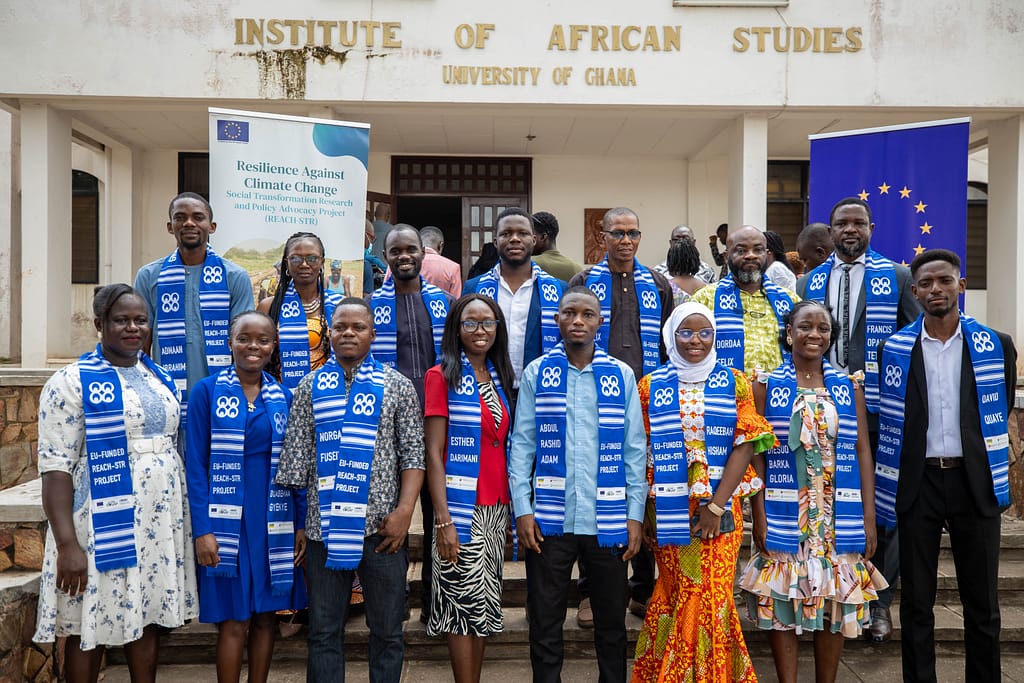
The International Water Management Institute (IWMI) has long been committed to youth capacity development, recognizing that empowering young scientists is essential for building sustainable, climate-resilient communities. Through the Resilience Against Climate Change – Social Transformation Research and Policy Advocacy (REACH-STR) project in Ghana, funded by the European Union, IWMI is strengthening the capacity of young scholars through the award of scholarships, mentorship, career guidance, and training in research, policy advocacy, and communication.
In Ghana’s climate-vulnerable Upper West and Savannah Regions, the impacts of climate change are worsening the challenges faced by already vulnerable communities. These areas are experiencing rising temperatures, erratic rainfall, and an increase in extreme weather events, severely affecting resource-poor smallholder farmers, women, and people with disabilities. This is because smallholder farmers are heavily dependent on rainfed farming, and women, who are often responsible for household food and water security, are excluded from climate adaptation strategies, further deepening their vulnerabilities.
Given that the impacts of climate change are expected to worsen, it is critical to build the capacity of the next generation of experts to effectively address these problems. Particularly, it is important to equip early career scientists with knowledge and tools to resolve challenges at the intersection of climate resilience, gender, migration, and social transformation.
Through the REACH-STR project, 19 PhD and Master’s students from the University of Ghana’s Centre for Migration Studies (UG-CMS) and Simon Diedong Dombo University of Business and Integrated Development Studies (SDD-UBIDS) received scholarships to pursue climate resilience, gender, and migration education programs. The scholars were supported with developing essential knowledge and skills, equipping them to contribute meaningfully to climate resilience and social transformation efforts.
They received professional mentorship, networking opportunities with policymakers and training in career development, thus strengthening their professional and leadership capacities, empowering them to lead climate resilience efforts within their communities and beyond.
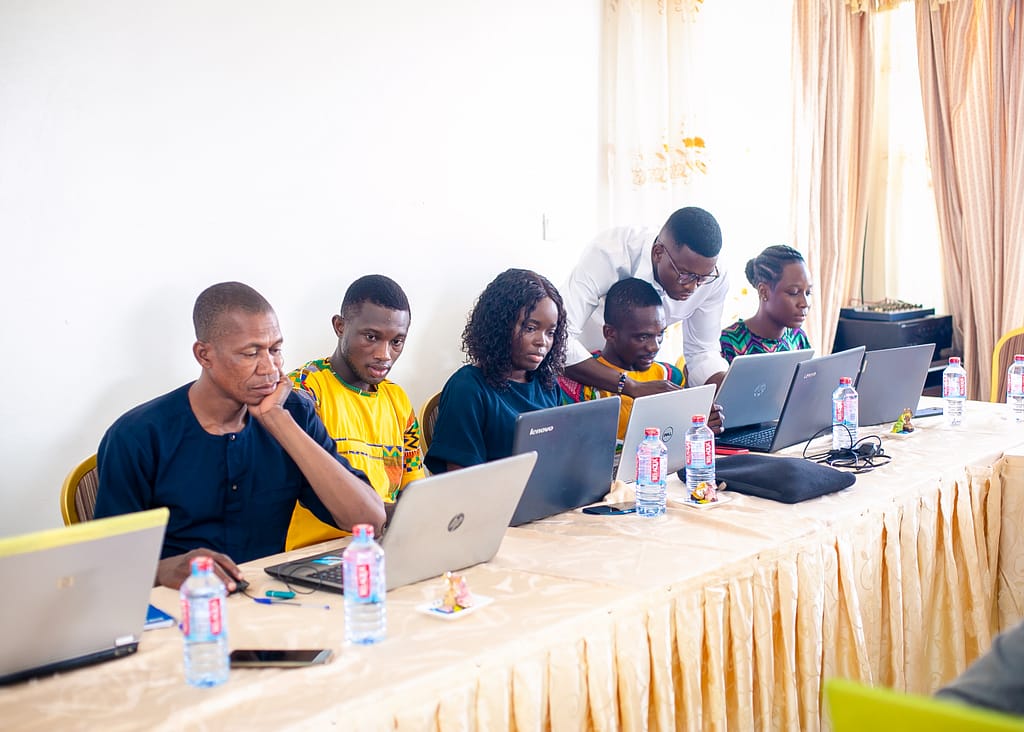
Highlights of the students’ research findings
The students’ research has provided actionable insights capable of enhancing effective pathways to sustainable social transformation in northern Ghana.
The findings from the research of Naomi Buabemaa Gyekye, an MPhil graduate from UG-CMS, is shaping the decision of the irrigation infrastructure project of the European Union-Ghana Agricultural Programme (EU-GAP) and Agence Française de Développement in northern Ghana.
Her recommendations are being considered in developing climate-resilient irrigation systems, tailoring interventions to local needs, and recognizing the role of migration in improving livelihoods.
Naomi’s experience at the Ghana Irrigation Development Authority adds to her valuable insights, positioning her to influence policy and improve irrigation outcomes.
IWMI’s support allowed Naomi to research the impact of climate-smart strategies, like irrigation, on migration and livelihoods in the Yelayiri and Siiru communities in the Wa West District of the Upper West Region. She found that irrigation improved livelihoods by increasing income, assets, and education. Irrigated households benefited more, while non-irrigated ones often relied on remittances from migrants.
Naomi also found that while irrigation helped mitigate the impacts of climate change, many household members migrated due to the declining efficiency of irrigation schemes over the past decade, making dry season farming less productive and undermining the intended benefits of the schemes. This calls for regular rehabilitation of non-functional irrigation systems and the development of new schemes to enhance farmers’ resilience to climate change.
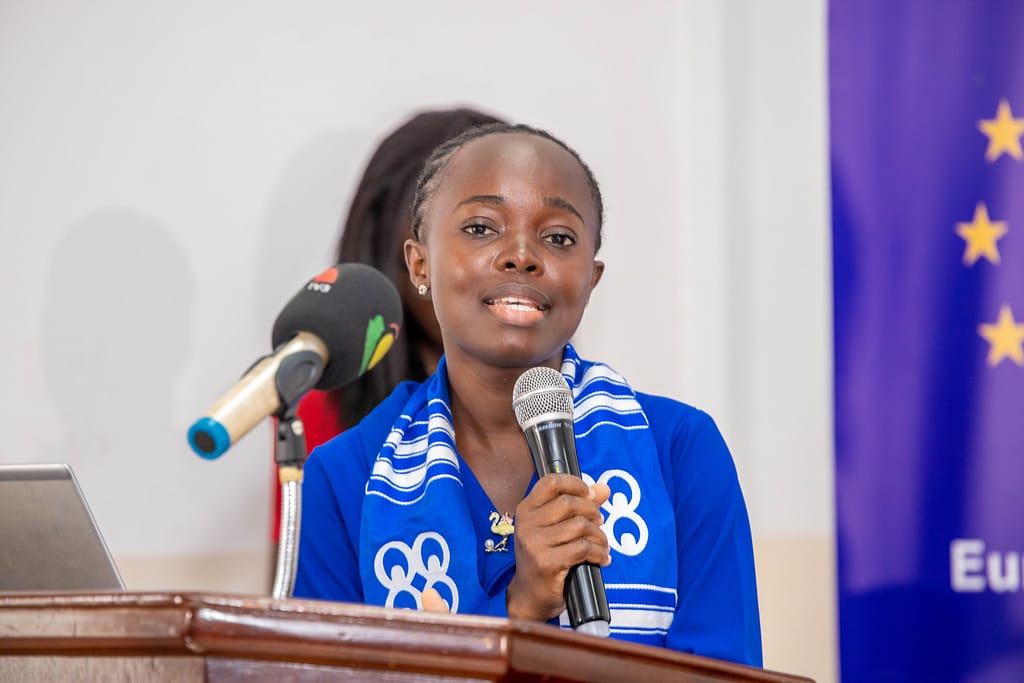
The research of David Quaye, a PhD candidate at UG-CMS who works at the Ghana Meteorological Agency, focused on climate data and forecasting. His experience with the Agency places him in a strategic position to influence policy. Thanks to the program he acquired expertise that enables him to promote data-driven policies that integrate climate forecasts with migration planning at both national and subnational governance levels.
David’s research provided insights on the relationship between climate change, migration, and social transformation in the Babile (Lawra district) and Piisi (Wa district) communities. He found that a 1°C increase in temperature during the dry season drives an additional 28.31% of the population to migrate.
He is now advocating for better integration of climate and migration dynamics into development planning, suggesting policies that view migration as an adaptation strategy.
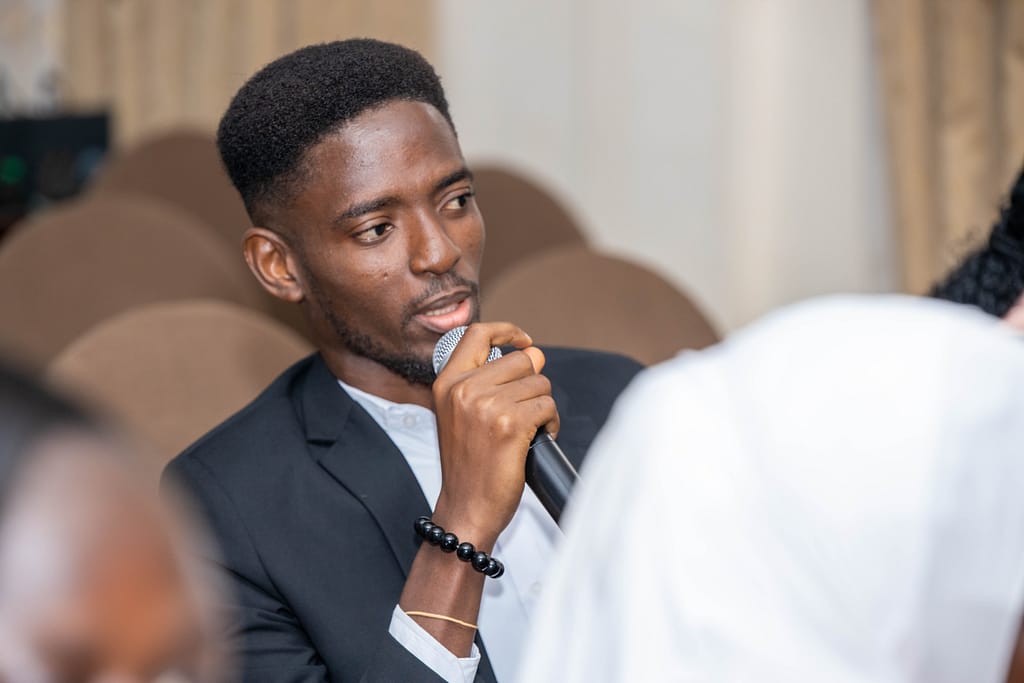
Students broaden academic skills and build their professional networks
During the recent graduation ceremony, the students reflected on the impact of IWMI’s capacity-building initiative.
David Quaye commented, “Through the project, I have built an extensive network of like-minded researchers and scholars who share a passion for development research and knowledge advancement in our field.”
Abdul-Rashid Adam, a Master’s graduate from SDD-UBIDS, said, “Participating in the REACH-STR project significantly broadened my academic horizons and introduced me to new dimensions of social research and analysis. I am deeply grateful for the opportunity to be part of such a transformative initiative.”
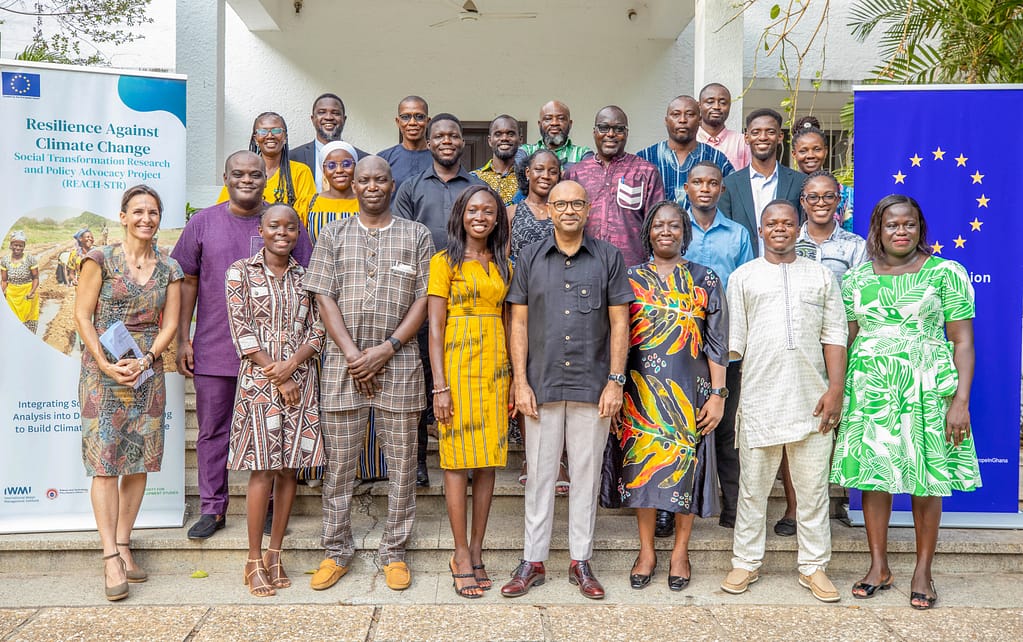
The IWMI REACH-STR capacity building initiative also provided internship opportunities to some scholars. Others engaged with the EU Ambassador to Ghana on key issues from their research and participated in policy discussions with members of the EU-GAP steering committee. Additionally, some contributed to coordinating stakeholder meetings and sharing their insights during discussions with stakeholders.
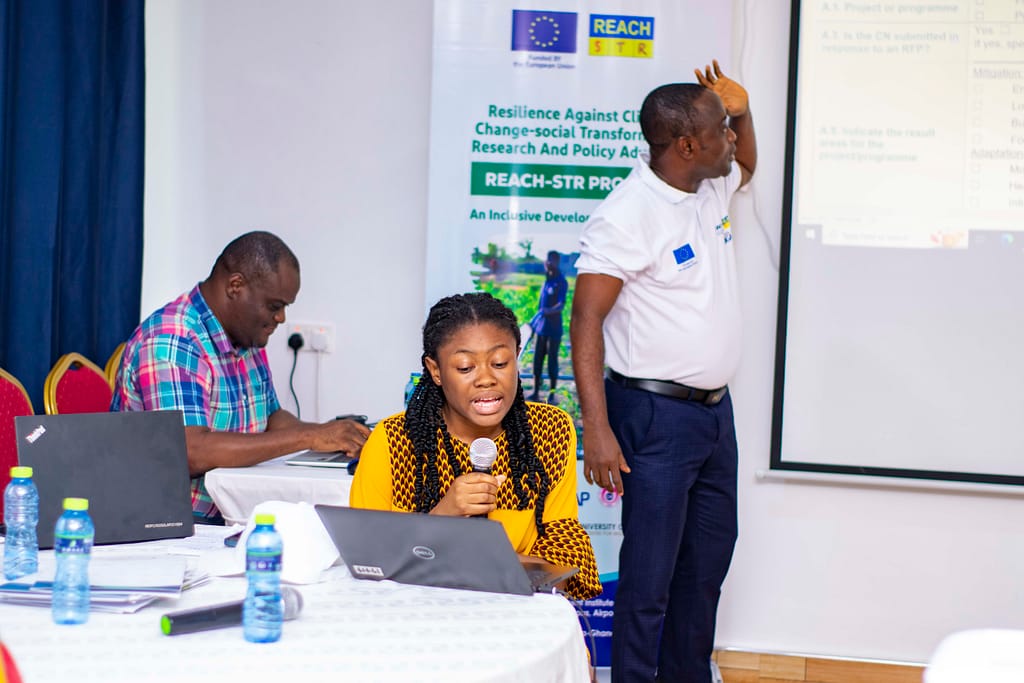
Naomi concluded, “The support and guidance from the project team, led by IWMI, propelled me to successfully complete my program. The networks built and the dedication with which they carried us along under the umbrella of the bigger project are invaluable.”
These reflections highlight the value of IWMI’s support not only in fostering academic achievement but also in creating long-term professional relationships and opening doors for future career advancement in the field of climate resilience and social transformation.
Young scholars equipped to develop climate-resilient solutions
IWMI’s REACH-STR capacity development initiative demonstrates how targeted educational investments can yield exponential returns in climate resilience. By equipping young scholars with technical expertise and policy influencing skills, a sustainable pipeline of local climate leadership has been created.
As these graduates advance in their careers, their deep understanding of climate challenges positions them to develop solutions that are both technically sound and culturally appropriate.
The future of sustainable development and effective climate action relies on strengthening the capabilities of the next generation to create inclusive, transformative changes.
















